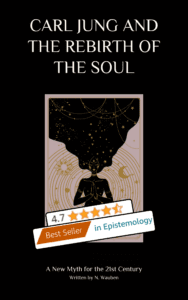In his book the Gay Science, published in 1882, Friedrich Nietzsche proclaimed that a transition was at hand, a transition initiated by a group of people whom Nietzsche called the ‘homeless’: “The ice that still supports people today has become very thin; the wind that brings the thaw is blowing: we ourselves who are homeless constitute a force that breaks open ice and other all too thin “realities”.” (p.338)
According to Nietzsche, the homeless are those people that do not believe in the realities and the ideals of the present time, and because they recognize the problems inherent to these realities and ideals, they are also the ones who can ‘expose’ these realities: “We children of the future, how could we be at home today? We feel disfavor for all ideals that might lead one to feel at home even in this fragile, broken time of transition; as for all its “realities,” we do not feel that they will last.” (p.338)
Although Nietzsche wrote this in the 19th century, I believe that there are still many people today who would consider themselves homeless according to the definition of Nietzsche. The homeless might recognize that the ideals and realities of the present day are very thin and are not helping humanity any further, they only result in further division; whichever set of common ideals one might support.
Nietzsche observed that the homeless will not agree with the idea that our current age is the best or most advanced type of society: “Is it not clear that with all this we are bound to feel ill at ease in an age that likes to claim the distinction of being the most humane, the mildest, and the most righteous age that the sun has ever seen?” (p.339) The homeless see that the ice upon which these realities are build is very thin, and that these statements will merely result in more scepticism: “It is bad enough that precisely when we hear these beautiful words we have the ugliest suspicions. What we find in them is merely an expression – and a masquerade – of a profound weakening, of weariness, of old age, of declining energies”. (p.339)
Nietzsche indicated that it does not matter which actions and words might be used to cover up the weakness of the thin ice: “What can it matter to us what tinsel the sick may use to cover up their weakness? Let them parade it as their virtue; after all, there is no doubt that weakness makes one mild, oh so mild, so righteous, so inoffensive, so “humane”!” (p.339) Nietzsche observed that the cover up that is being used is a “religion of pity”: “The “religion of pity” to which one would like to convert us – oh, we know the hysterical little males and females well enough who today need precisely this religion as a veil and make-up.” (p.339)
This relates to Nietzsche’s discussion on the Tarantulas, you can read more about the Tarantulas here: The Tarantulas. In short, Nietzsche used the term Tarantulas for moral preachers who attempted to convey the message that they favour justice and equality, while in fact, they do not preach these values out of love for humanity, but are motivated by jealousy and revenge: “’Vengeance will we use, and insult, against all who are not like us’ – thus do the tarantula-hearts pledge themselves. ‘And “Will to Equality” – that itself shall henceforth be the name of virtue; and against all that hath power will we raise and outcry!’” (Thus Spoke Zarathustra, p.97) Nietzsche believed that, as soon as the Tarantulas would acquire power, they would be quick to dismiss those values which they had preached until then: “And when they call themselves ‘the good and just’, forget not that for them to be Pharisees, nothing is lacking but – power!” (Ibid, p.98) As such, the ice is very thin, but the homeless will recognize it.
When Nietzsche wrote these words, he was directing them against nationalism and race hatred, which was already spreading throughout Europe and was creating divisions between people:
“We [the homeless] are not nearly “German” enough, in the sense in which the word “German” is constantly being used nowadays, to advocate nationalism and race hatred and to be able to take pleasure in the national scabies of the heart and blood poisoning that now leads the nations of Europe to delimit and barricade themselves against each other as if it were a matter of quarantine.” (p.339)
It is easy to draw parallels here with the ‘blood poisoning’ that is happening in our current age; the homeless will not recognize that political, religious, or, nowadays, even medical distinctions are sufficient reasons for us to barricade ourselves against eachother, because they are build upon thin ice: “For that we are too openminded, too malicious, too spoiled, also too well informed, too “travelled”” (p.339)
Sadly, after Nietzsche wrote this, the homeless were not able to thaw the ice, and nationalism, and class and race hatred culminated in the worst possible outcomes. Horrible acctions were justified by preaching that they are based upon moral values; the tarantulas were successful in their disguise:
“We [the homeless] far prefer to live on mountains, apart, “untimely,” in past or future centuries, merely in order to keep ourselves from experiencing the silent rage to which we know we should be condemned as eyewitnesses of politics that are desolating the […] spirit by making it vain and that is, moreover petty politics: to keep its own creation from immediately falling apart again.” (p.340)
Nietzsche questioned whether, in order for the ‘system’ not to collapse, it might be necessary for there to be an extreme form of division and hatred: “Is it not finding it necessary to plant it between two deadly hatreds?” (p.340)
The homeless, according to Nietzsche, do not want to subscribe to the faith that ideals or religions, which are dividing us from eachother, are the solution to all the problems in the world, instead the homeless are driven by a faith which is based upon a ‘yes’: “The hidden Yes in you is stronger than all Nos and Maybes that afflict you and your age like a disease: and when you have to embark on the sea, you emigrants, you, too, are compelled to do this by — a faith!” (p.340) What is this faith? It must be the strongest faith, a faith that can thaw the ice upon which all division, separation and hatred Is build. Are you homeless?
“We, openhanded and rich in spirit, standing by the road like open wells with no intention to fend off anyone who feels like drawing from us – we unfortunately do not know how to defend ourselves where we want to: we have no way of preventing people from darkening us […] But we shall do what we have always done: whatever one casts into us, we take down into our depth – for we are deep, we do not forget – and become bright again.” (p.341)

